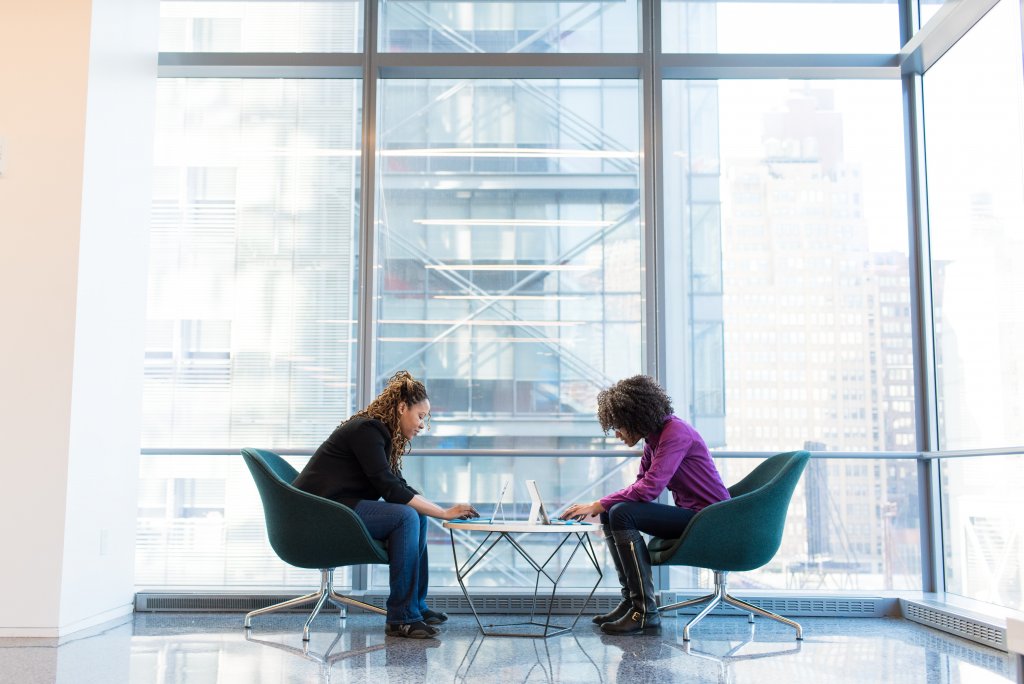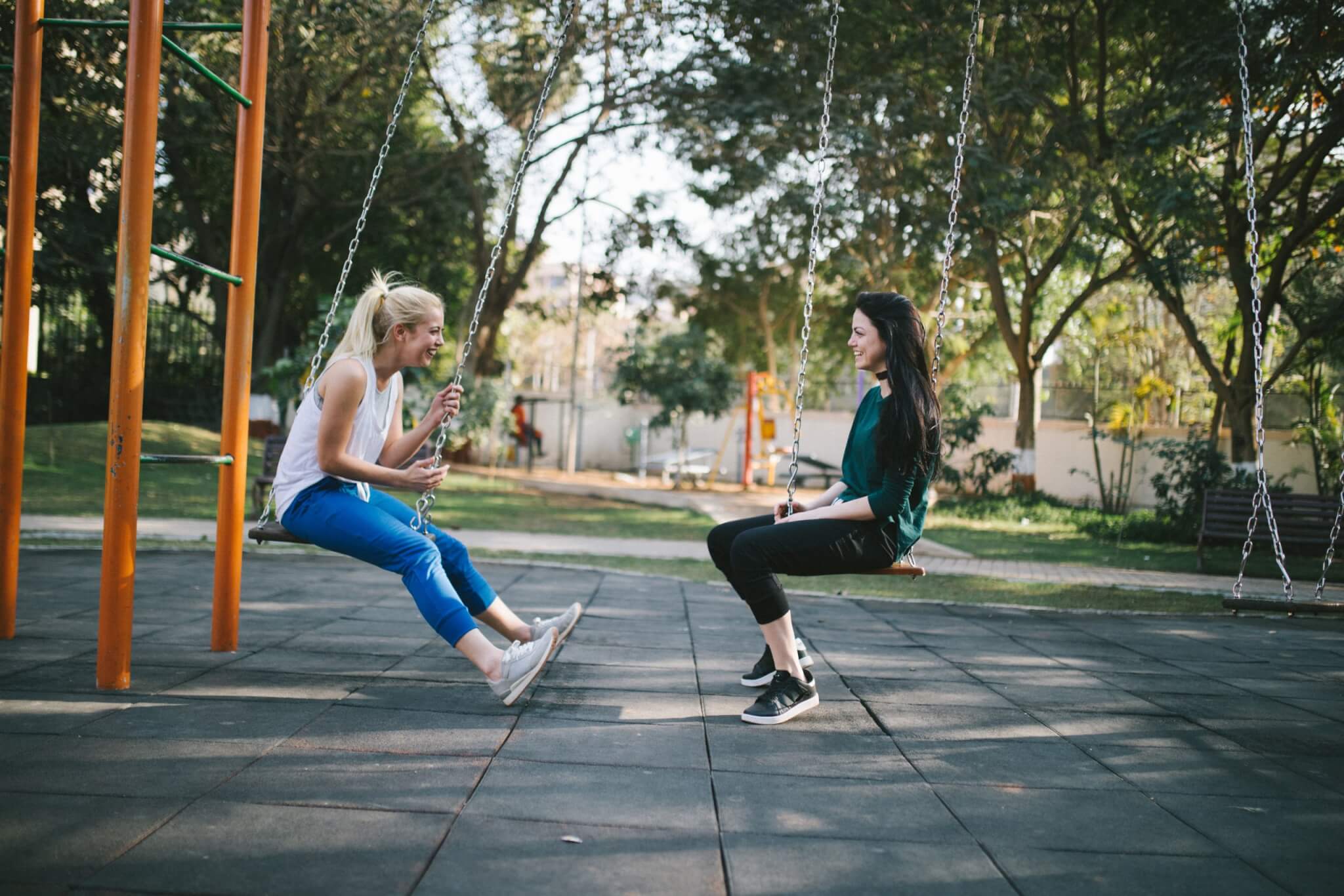How does the thought of going back to the office make you feel? What about chatting with strangers or acquaintances at a party or a bar? Are you excited to mingle, or does the idea make your anxiety levels skyrocket?
If you’re a little tense about returning to the world, you’re not alone. Turns out that around 50% of the US adult population has hesitations about picking up where they left off prior to COVID.

In a recent study conducted by the American Psychological Association, about half of all Americans said they felt uneasy about adjusting to in-person interactions once the pandemic ends.
But why? After all this time alone, or isolating in pods, shouldn’t we be hungry for community, friendship, and the chance to gossip over a glass of wine?
The negative effects of social isolation
Let’s start with the obvious. Over the last months, we’ve been told over and over that social encounters increase the risk of spreading a potentially deadly disease. So it’s not a surprise that some of us, even post-vaccination, might simply be feeling uneasy from a health perspective.
But there’s more to it. Spoiler alert: Being cooped up in our homes and not flexing our social muscles for well over a year has some actual physiological and mental effects!
No wonder that we’re feeling rusty, socially awkward, and even a bit anxious when it comes to socializing with others—outside of Zoom happy hours and the occasional walk around the lake with your bestie, that is. (It’s the reason this SNL skit about “post-quarantine conversation” hit a bit too close to home for some people.)

Over the past 16 months or so, you’ve probably noticed some of the adverse effects social distancing has had on your body and mind. Maybe you’ve had a difficult time getting out of bed or staying focused during the day. Research has established an association between perceived social isolation and factors such as poor sleep quality and impaired cognitive function.
We’ve also been lacking common intimacies that we used to take for granted. “One of the main things that happened was the lack of friendly touch — hugs, handshakes, and even getting your hair done, your nails done,” psychology professor Tara Well tells Vox. “That has a tremendous impact on our anxiety levels, our ability to feel like ourselves, and, again, our emotions and a sense of bonding. We really need that physical touch.”
Isolation has other consequences. According to a recent study, when we lack engagement with the outside world, we tend to turn inwards, indulging in imagination or nostalgia. There’s obviously nothing wrong with that, but choosing to exclusively focus on our inner world won’t help us to adjust back to ‘normal’ social life—with actual people.
But let’s go a step further and check out how social isolation and loneliness might have literally influenced your brain.
The Scientist has summarized some important insights in regard to the areas of the brain most affected by a lack of social interactions: “About a decade ago, researchers found a correlation between the size of a person’s social network and the volume of their amygdala, two almond-shaped brain areas associated with processing emotion,” they write. “More recent evidence suggests the amygdalae are smaller in people who are lonely.”
Okay, it’s one thing to learn about the physiological basis of social isolation. But what can you actually do to reverse potentially negative effects and to ease yourself back into some semblance of normalcy?
We’ve pulled together some science-based hacks to strengthen your social muscles as you get more comfortable getting back out there in a post-quarantine world.

Don’t avoid uncomfortable situations
Yes, we know that’s easier said than done. Sometimes we think that avoidance is the best way to handle awkward or anxiety-inducing situations. If initiating a conversation with a co-worker makes you feel uneasy, you might think to yourself: “I’ll just pretend I’m too busy to chat—problem solved!.”
However, if you never expose yourself to uncomfortable situations, you’ll never be able to master these skills. This means your initial hypothesis—that talking to that co-worker will lead to potential embarrassment—will never be refuted.
Jonathan Abramowitz, a psychology professor and director of the Anxiety and Stress Disorders Clinic at the University of North Carolina at Chapel Hill, summed it up nicely to the Washington Post.
“Avoidance prevents a person from learning that catastrophe most likely won’t occur,” he explained, “and [that] even if things go badly, they would find a way to cope and get through the situation”.
The way to go here is light exposure and practice. There’s no need to dive in all at once. As Paraskevi Noulas, a psychologist at NYU Langone, told Healthline: “The more we expose ourselves to a situation, the more our mind and body adjusts to it.”
So we’ve established that simply avoiding things like birthday parties or water cooler gossip isn’t the way to go. Let’s look at what you should do to reclaim your social muscles.
Practice socializing with people you already feel comfortable with
You haven’t met your favorite college roommate for coffee in months? Now’s the time. It seems obvious, but hanging out with someone you have a positive history with will help you grow more confident. You can use this confidence when talking to people you’ll feel less comfortable with.
Try to meet your new (or old) co-workers in a less formal setting before you bump into them at the office
Since one third of all American employees have changed or lost their job within the last year, many of us have never even met our new coworkers in real life. That’s pretty unprecedented. Having to suddenly meet colleagues face-to-face—people you’ve only interacted with virtually for over a year—can be intimidating, to say the least.
Suggest an informal outing, so everyone can get to know each other outside of work. Members of Lemonade’s New York-based Comms, Content, and Creative teams planned a lunch at an Israeli restaurant in Brooklyn. It was the first time many of them had met in person. “It took a lot of pressure off of those initial introductions,” says Editorial Lead Scott Indrisek. “Rather than awkward small talk in an office that was unfamiliar to many of us, we were able to spend time together in a cozy (and neutral) place.”
Alternate between the days you’re in the office and at home
Creative companies like Google have realized the benefit of hybrid work models. If your own employer is flexible, take advantage of a mix of time in and out of the office. It might actually increase your productivity—and it will allow for a gentler reintroduction into social life.
Don’t pack too many outings in one week
You might want to catch up with all the friends you didn’t see for what felt like eternity, but slow down. It might be better to schedule one or two events a week to ease back into socializing.

Shift the focus of the conversation
If you’re feeling a bit rusty and don’t want to be in the spotlight, try to shift the focus to the other person. An easygoing and perhaps clichéd question can jumpstart a more heartfelt conversation. “Seen anything that’s made you laugh recently?” could lead to a discussion of Inside, and from there—who knows what you might end up discovering about each other.
“Focus your energy on being interested in the other person, showing empathy and kindness towards them, rather than being stuck inside your own anxious mind,” psychotherapist Charley Gavigan told the BBC when discussing how to reacclimate to a post-quarantine world.
Once you’ve managed to break the ice, engage in some old-fashioned active listening. That doesn’t only take you out of the center of attention, it’s also a simple tool to create rapport.
Remember… it’s not just you
Some final, less scientific advice: Don’t forget that we’re all in this together. As we inch out of this pandemic, even the biggest extroverts might feel socially awkward.
Sometimes, it could simply be enough to address the elephant in the room and voice how you’re feeling. Maybe the way you’ll forge a social connection is actually by admitting how challenging it is to socialize again after such a strange year.